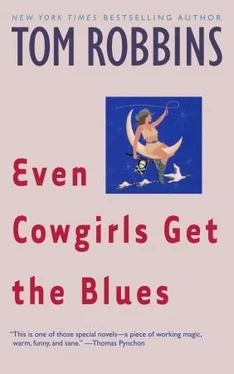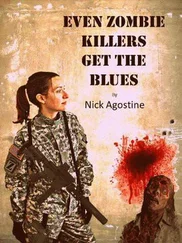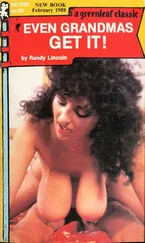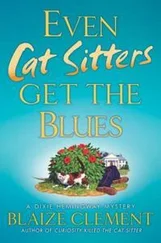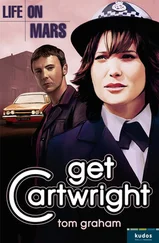“Criminey,” said Sissy. “Looks like I was in such a hurry to masturbate I missed the hole by a foot.”
98.
LET'S END THIS GOSSIP AT ONCE AND FOR ALL: Richmond, Virginia, is not in love with England, no baby is expected, no wedding in sight. For its part, the internationally renowned England scarcely is aware of Richmond, Virginia's existence, and furthermore, has a Richmond of it's own living under its roof in North Surrey. As for prosperous, conservative, up-and-coming Richmond, Virginia, what it feels for England — many years its senior — is not romantic passion but envy. It admires England's centuries of respectability and wishes they were its own. It longs to wear England's knickers, not get in them. Remember, you read it here first.
One way in which Richmond demonstrates its admiration and envy is through imitation (Don't we all?). For example, Richmond has reproduced tons of English architecture and left it out in the weather, permitting it to be occupied by persons whose accents would drive a proper Englishman to stuff his ears with hasty pudding. In the West End, the most popular house style is the enlarged version of the traditional English cottage, with old beams and storybook roofs, but usually luxurized by such non-Anglo features as swimming pools, patios and porches enclosed with thermal glass.
It was in just such a posh cottage that Sissy waited for her new thumb to come out of the oven.
Meanwhile, she took refreshed delight in the old thumb, the monstrous left one, the one that broke the bank at Monte Weirdo. Sissy oiled it and perfumed it, sunned it and fanned it, flexed it and rotated it, made awful ovoid shadows with it on ceilings and walls, aimed it at stars and planets, let it splash in the tub, rolled it over her erogenous zones, flashed it at imaginary speeders on the Highways of the Heart and talked over old times with it. It was like a second honeymoon. The only occasion when the reconciliated appendage failed to thrill and cheer her was when she thought of it smacking skulls. Then she would shudder like the sanitation man who had to collect the garbage at Frankenstein's castle.
Mostly, though, Sissy carried the left thumb around grandly, a sight that befuddled Margaret Dreyfus, caused Felix Dreyfus to smile. Their reactions mattered little, however, because when Sissy wasn't absorbed with her thumbs — little new one baking, big old one basking — she was equally absorbed with following the whooping crane story in the news.
99.
ONE PRAIRIE NIGHT when the sky looked like a bowl of cream of moon soup, stirred by the long ladle of the wind, the vehicle known to the cowgirls as “the peyote wagon” and to the press as “the reptile-decorated camper” pulled out of the Rubber Rose and didn't return. Delores del Ruby was at the wheel. The media speculated that the departure of the “black-garbed, whip-cracking second-in-command” was significant, perhaps an indication that there was dissension at the “mystery ranch."
For the next few days, reporters watched for signs of disharmony, but as far as they could tell through their binoculars, and in occasional conversations with taciturn guards at the gate, solidarity prevailed. Indeed, the pardners were attempting to enjoy cowgirl life just as if the National Eye never interrupted its scrutiny of the new President in order to blink at them. To the director of the Aransas Wildlife Refuge, who observed them riding, roping, skinnydipping and flying Tibetan tantra kites, they had “every appearance of young girls on a lark.”
In their bunkhouse meetings, however, a certain sobriety overtook their giggles, and as they cleaned firearms and analyzed their situation, no one would have mistaken them for Girl Scouts. Vivid and vulgar curses left their lips, directed at the elements that parched their vegetable garden one week, flooded it the next.
“The prairie gods were never friendly to agriculture,” Debbie reminded her companions. “They were more into buffalo.”
Big Red wasn't placated. “We don't have beans or buffalo,” she complained.
“The goats are our buffalo,” said Debbie. “As long as we got them we got milk, yogurt and cheese.”
“We got milk, yogurt and cheese,” agreed Jellybean, “but we aren't gonna have any Crosby, Stills and Nash — not when the power company cuts our electricity off, we aren't. So those of you that favor the stereo over my old Gibson, why don't you volunteer to work on the windmill this afternoon, even if this is a Sunday?”
“I must observe the Sabbath and keep it holy,” objected Mary.
“Okay, Mary,” said Jelly, “you can spend the afternoon praying for those podners who are out working their butts off. By the way, Billy West is giving us the windmill materials free of charge, bless his heart, bless all three hundred pounds of him; he told me this morning that he isn't gonna charge us. So what you say we get in high gear and get that baby built. Any questions?”
“Yes,” said Heather, “What if every podner on the ranch wore one of those beanies with the little plastic propeller on top? The way the wind blows around here, would that generate enough extra electricity so's I could send away for a vibrator?”
“Vibrators run on batteries, honey,” said Jelly, feeling guilty, perhaps, about her weekly yam sessions with the Chink. “Meeting adjourned.”
A crew of cowgirls set out to build the windmill, singing as they worked. The official observers of the ranch found nothing alarming in that construction. But a short time later, the girls undertook some further building, the implications of which were to bring things squawling to a head at the Rubber Rose.
Oh yeah. . Sissy, back there in Virginia listening to the news, Sissy guessed correctly where Delores had gone. The forewoman was off to New Mexico on a peyote run.
100.
WELL, here we are at Chapter 100. This calls for a little celebration. I am an author and therefore in the same business God is in: if I say this page is a bottle of champagne, it is a bottle of champagne. Reader, will you share a cup of the bubbly with me? You prefer French to domestic? Okay, I'll make it French. Cheers!
Here's to the one hundredth chapter! Hundred. A cardinal number, ten times ten, the position of the third digit to the left of the decimal point, a power number signifying weight, wealth and importance. The symbol for hundred is C, which is also the symbol for the speed of light. There are a hundred pennies in a dollar, a hundred centimeters in a meter, a hundred years in a century, a hundred yards on a football field, a hundred points in a carat, a hundred ways to skin a cat and a hundred ways of cooking eggplant. There also are a hundred ways to successfully write a novel, but this is probably not one of them.
Don't be so quick to agree. Even Cowgirls Get the Blues can still teach you a thing or two. “For example?” you ask snottily, while helping yourself to my champagne. For example, this: on a number of occasions this book has made reference to magic, and each time you've shaken your head, muttering such criticisms as “What does he mean by 'magic,' anyhow? It's embarrassing to find a grown man talking about magic in such a manner. How can anybody take him seriously?” Or, as slightly more gracious readers have objected, “Doesn't the author realize that one can't write about magic? One can create it but not discuss it. It's much too gossamer for that. Magic can be neither described nor defined. Using words to describe magic is like using a screwdriver to slice roast beef.”
To which the author now replies, Sorry, freeloaders, you're clever but you're not quite correct. Magic isn't the fuzzy, fragile, abstract and ephemeral quality you think it is. In fact, magic is distinguished from mysticism by its very concreteness and practicality. Whereas mysticism is manifest only in spiritual essence, in the transcendental state, magic demands a steady naturalistic base. Mysticism reveals the ethereal in the tangible. Magic makes something permanent out of the transitory, coaxes drama from the colloquial.
Читать дальше
